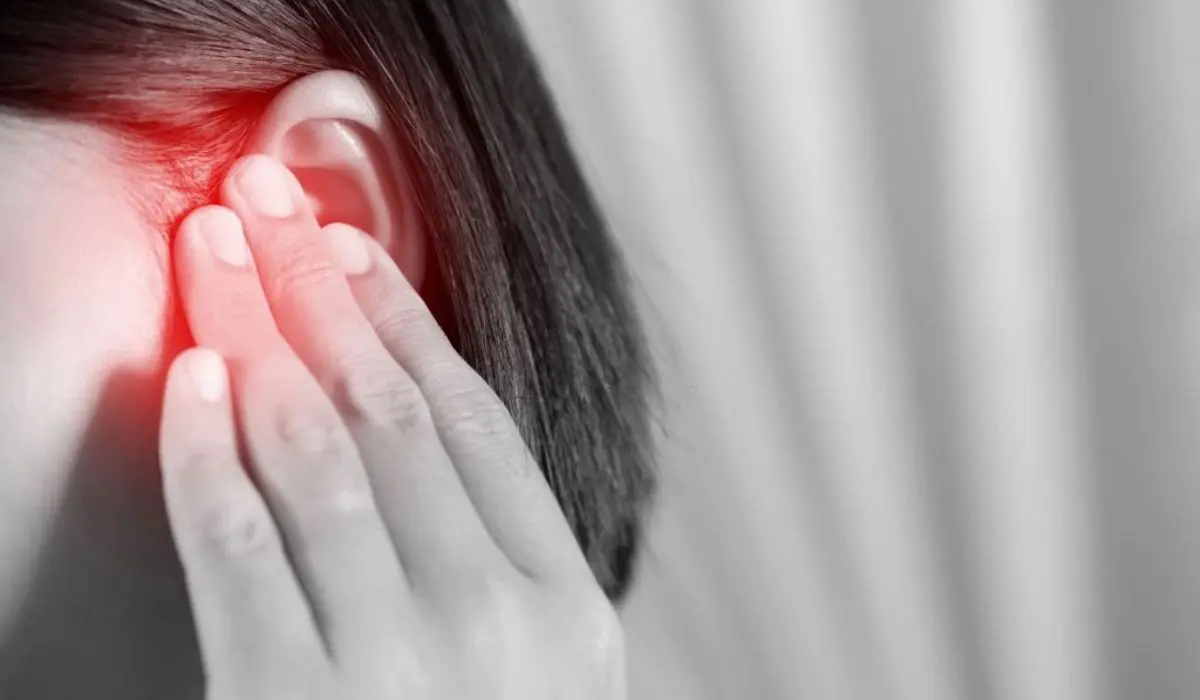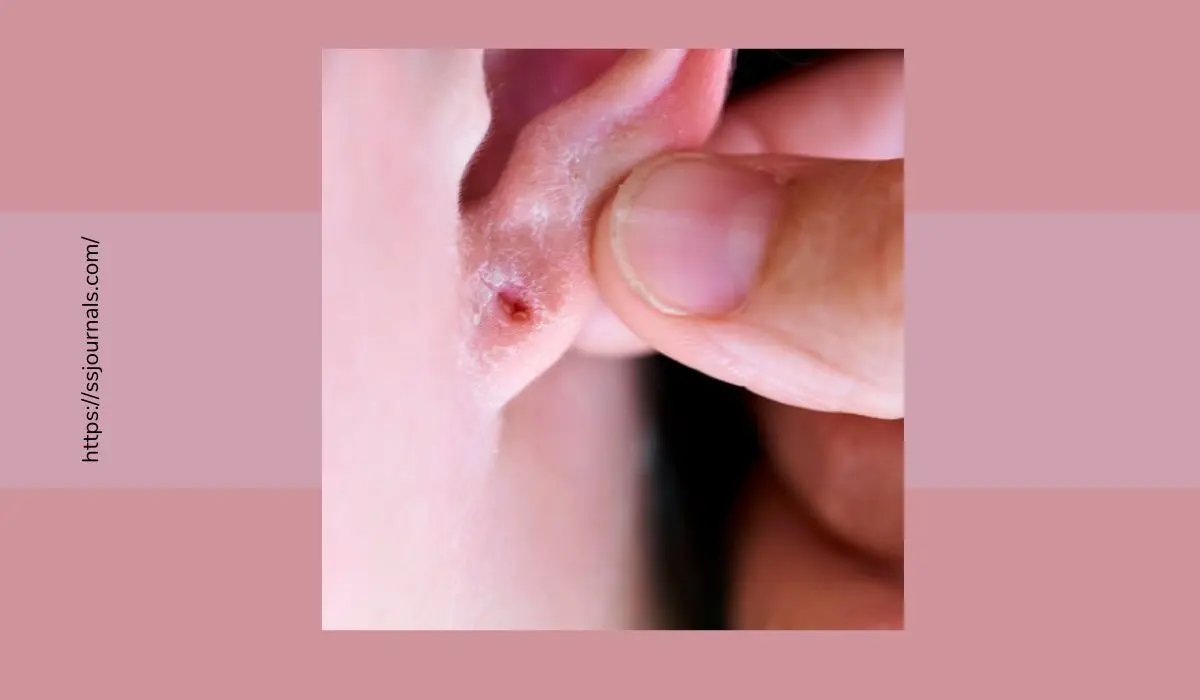If you’re experiencing ear lobe inflammation, you’re not alone. This condition is quite common and can be caused by a variety of things.
In this blog post, we’ll explore the causes and symptoms of ear lobe inflammation, so you can better understand what’s going on with your body.
Ear Lobe Inflammation – Causes & Symptoms
Inflammation of the ear lobe, also called ear lobe cellulitis, is a common condition that can arise for various reasons. The most characteristic symptom is a reddened, swollen, painful ear lobe.

In some cases, the inflammation and swelling can spread to surrounding areas like the jaw and neck. While usually not serious, ear lobe inflammation should be evaluated to identify the source and ensure proper treatment.
➔ Causes
There are several potential causes of an inflamed, irritated ear lobe:
👂 Infection
Bacterial and fungal ear infections can spread from elsewhere in the ear to the lobe causing swelling, redness, and pain. Otitis externa (swimmer’s ear) and middle ear infections are examples.
👂 Trauma
Any trauma to the ear lobe tissue, like hitting it or getting it caught on something, can trigger inflammation due to damaged blood vessels and fluid buildup. piercings are a common source of trauma.
👂 Allergic reaction
Allergies to jewelry metals, skin products, hair dyes, or other substances in contact with the ear lobe can prompt inflammation. The nickel in cheap jewelry is a frequent culprit.
👂 Skin conditions
Eczema, psoriasis, and other skin conditions affecting the ear lobe can result in inflammation, itching, flaking, and irritation.
👂 Chronic sunlight exposure
Long-term sun exposure may cause the ear lobe skin to thicken, redden, and become inflamed.
👂 Medications
Certain medications like nonsteroidal anti-inflammatory drugs (NSAIDs) can sometimes cause inflammation of the ear lobe skin.
➔ Symptoms
Signs and symptoms of an inflamed, swollen ear lobe can vary slightly depending on the cause but often include:
In severe cases, inflammation and swelling can spread beyond the ear lobe to the jawline, cheek, neck, and temporal area near the ear.
However, the majority of ear lobe inflammation cases are mild with symptoms confined to the lobe itself.
➔ Diagnosis & Treatment
To determine the cause of ear lobe inflammation, a physician will ask about symptoms and visually examine the ears.
They may also feel the area for tenderness or hardened tissue, take a culture swab, and use an otoscope to look inside the ear canal.
Treatment depends on the underlying trigger:
To ease discomfort from inflammation and promote healing, doctors may recommend:
With appropriate treatment, most cases of ear lobe inflammation will clear up within 7-10 days. Seek medical attention if swelling worsens, pus drains from the ear, or fevers develop, as antibiotics may be needed. Taking simple steps to avoid irritating the inflamed lobe can hasten recovery.
Conclusion
Ear lobe inflammation can be uncomfortable, but by understanding its causes and symptoms, you can take appropriate measures to prevent and manage it. If you experience persistent inflammation or are unsure about the cause, don’t hesitate to seek medical advice.
Remember to practice proper ear lobe care and choose suitable earrings to keep your ear lobes healthy and happy.
FAQs
To prevent ear lobe inflammation caused by allergies, opt for hypoallergenic earrings made of materials like stainless steel, titanium, or 18K gold. Regularly clean your earrings and avoid wearing them continuously.
After getting your ears pierced, clean them twice daily with a saline solution. Avoid touching the earrings unnecessarily and follow your piercer’s aftercare instructions.
Applying a cold compress, using over-the-counter hydrocortisone cream, and keeping the ear lobe clean and dry can help relieve mild inflammation. However, consult a healthcare professional if the condition persists.
In some cases, chronic ear lobe inflammation may indicate an underlying health condition. If the inflammation is persistent or accompanied by other symptoms, consult a healthcare provider for evaluation.
The healing time for ear lobe inflammation varies depending on the cause and severity. In mild cases, it may resolve within a few days, while more severe cases may take weeks to heal.

